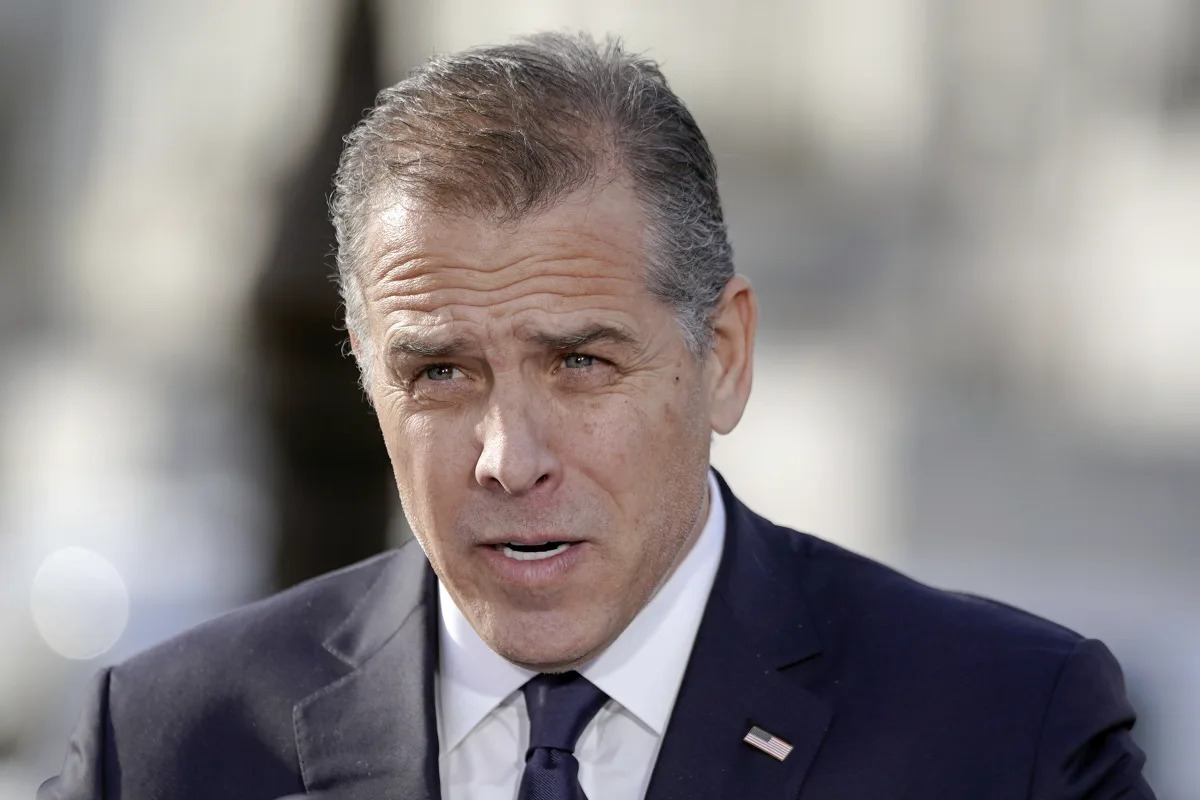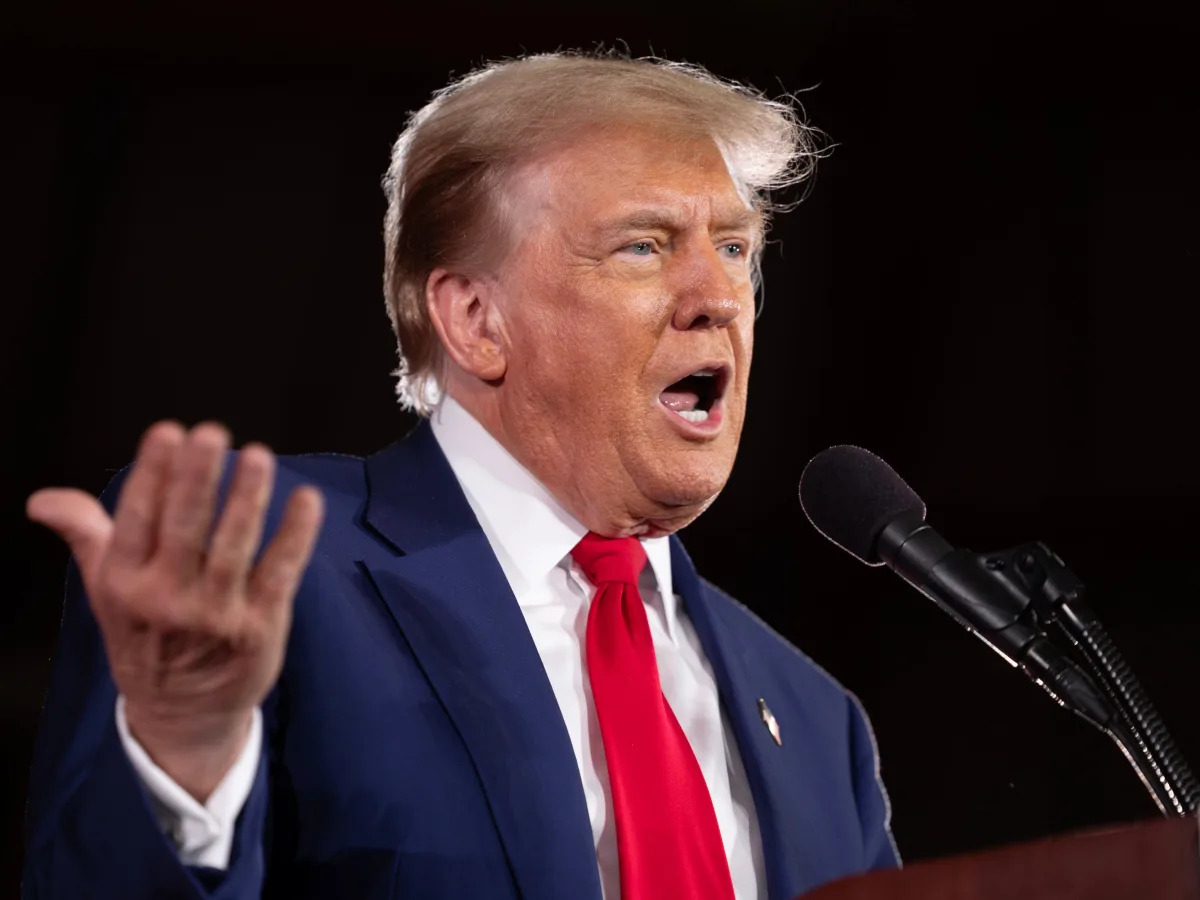Beware cornering a US president anxious about re-election. Benjamin Netanyahu has repeatedly ignored that advice in his dealings with Joe Biden, and this week his country learned the price.
It came in the revelation that Biden had withheld the supply of about 3,500 bombs, refusing to let US munitions play a part in an Israeli assault on the southern Gaza city of Rafah, where more than a million Palestinians have sought refuge. The president was at pains to say he was not giving up his “ironclad” commitment to Israel. Instead, it was just the specific, long-threatened Rafah operation that he would not back with weapons. “We’re not walking away from Israel’s security,” Biden told CNN. “We’re walking away from Israel’s ability to wage war in those areas.”
To understand why this is such a big deal, remind yourself of the people and the countries involved. The US is Israel’s most crucial ally. Israel’s former prime minister Yitzhak Rabin used to say that his country’s number one strategic asset was not this or that weapon – not even its unconfirmed, and undenied, nuclear arsenal – but its relationship with Washington. For many decades, the US has served as Israel’s chief arms supplier and diplomatic protector. And yet in the space of less than six weeks, Washington has withheld its veto at the UN security council, allowing a resolution to pass in late March that Israel wanted blocked, and now it has closed the doors to at least part of its armoury.
What’s more, these actions were taken by a man who is, by some distance, the most personally devoted supporter of Israel ever to sit in the Oval Office. Biden is a Democrat from the era when the notion of a restored Jewish homeland in the Middle East – promising an end to two millennia of exile and persecution – would turn US liberals misty-eyed. It takes little prompting for Biden to boast that he has met every Israeli leader since Golda Meir. Unlike past presidents, his affinity for Israel is not solely the product of electoral calculation: as his Jewish supporters put it, it’s in his kishkes. It’s in his guts.
Meanwhile, Netanyahu came to prominence in the 1980s as an Israeli diplomat who spoke fluent American. He offered himself then and since as an expert on the US political landscape, a crucial skill for a would-be Israeli leader. For decades, his message to the Israeli electorate has been that only he – who stands in “another league” above his domestic rivals – can be trusted with the all-important US-Israel relationship.
But look at the state of it now. Biden has become the first US president in more than four decades to deny Israel military aid in this way. (Ronald Reagan conveyed US fury after Israel’s invasion of Lebanon in 1982 by delaying a consignment of fighter planes.) And why has he done it? Because, under Netanyahu, a growing section of the US public is souring on Israel as never before.
It’s true that a bedrock level of support for the country exists that may surprise those seeing daily footage of US campuses in ferment. When Gallup asked Americans in March where their sympathies lay, 51% stood with Israel, while 27% backed the Palestinians. But among Democrats and young people, it’s the Palestinians who prevail, by eight-point margins in both cases.
Those are the numbers that weigh on Biden and his re-election team, as they face the unravelling of the coalition that defeated Donald Trump in 2020. A period of newly intense suffering in Gaza will alienate yet more of the voters they need to win. The White House asked Netanyahu to show them a plan that would achieve a goal they regarded as legitimate – the removal from Rafah of Hamas’s last remaining battalions – but without risking mass civilian casualties. Netanyahu could not do it. Which is why Washington has resorted to a more direct means of making him stop.
It’s become a test of strength that Biden cannot afford to lose. He made an all-out attack on Rafah a red line: if Netanyahu crosses it, that makes Biden look weak. Facing an opponent, Trump, determined to make strong v weak the defining choice of the coming election, he cannot let that stand.
But still Netanyahu refuses to buckle, telling his people ahead of Israeli independence day that they will fight alone, without US arms, with their fingernails, if they have to. He wants to sound Churchillian, but these are words of weakness, not strength. For he is pulled in two directions: Washington wants him to stay out of Rafah, while his far-right coalition partners, the ultra-nationalists Bezalel Smotrich and Itamar Ben-Gvir, insist he go in hard, to finish the job and win a “total victory” over Hamas.
US support may be essential for Israel’s national interest, but in a contest of Biden v Ben-Gvir, there was only going to be one winner. Without the latter’s support, Netanyahu loses his coalition. Suddenly, he will have to face the voters itching to punish him for the failures that led to 7 October, as well as the courts, for a resumed trial on charges of bribery, fraud and breach of trust. Which is why he will always buckle to the bigots to his right. It may have Netanyahu’s name on it, but this is Ben-Gvir’s government now.
It’s the same logic that has led Netanyahu to drag his feet in talks to broker a ceasefire and release the Israeli hostages still held in the darkness by Hamas. Biden wants him to do a deal, because Biden needs this war over. The Israeli public want him to do a deal, because they are desperate to bring the captives home. But Ben-Gvir is the man who opposed the last and only agreed hostage release deal, back in November. He prefers to keep pounding Gaza, harder and harder, in search of an illusory and impossible victory. And because that’s what Ben-Gvir wants, that’s what Netanyahu gives him – even if it means pushing Biden into an ever tighter corner.
Still, Biden and Netanyahu are not the only players in this bleak drama. Yahya Sinwar, Hamas’s leader in Gaza, has his own calculations, his own determination to remain in charge. Those who have studied him closely believe his priority is not so much an end to the killing of innocent civilians – on the contrary, the more Gazans who die, the more damage that does to the international standing of his enemy, Israel – but rather a scenario that allows him to claim victory. Sinwar thought he had that earlier this week, with the deal Hamas loudly accepted. The stumbling block is the agreed duration of any cessation of violence. Sinwar does not want it to be temporary, even if that would save many lives and ease the misery of Gaza. He wants a declaration that the war is permanently over. And for that he can wait.
And so there is no deal, because neither Netanyahu nor Sinwar believes what’s on offer serves their interests. As the former US state department official Aaron David Miller puts it: “The only party that’s really in a hurry is Biden.” Though that’s not quite right. Also in a hurry are the hostages and their families, whose agony has endured for more than 200 days, and the civilians of Rafah, huddled in tents, grieving their tens of thousands of dead, without running water or sanitation. They’re in a hurry too. But no one is listening to them.
Jonathan Freedland is a Guardian columnist
Do you have an opinion on the issues raised in this article? If you would like to submit a response of up to 300 words by email to be considered for publication in our letters section, please click here.

 German (DE)
German (DE)  English (US)
English (US)  Spanish (ES)
Spanish (ES)  French (FR)
French (FR)  Hindi (IN)
Hindi (IN)  Italian (IT)
Italian (IT)  Russian (RU)
Russian (RU)  1 week ago
1 week ago
























Comments